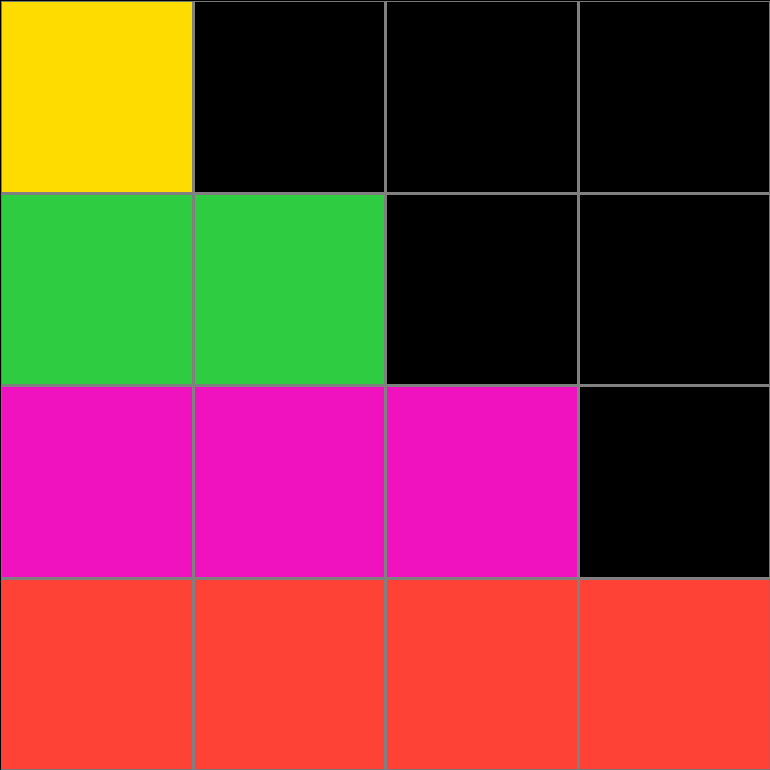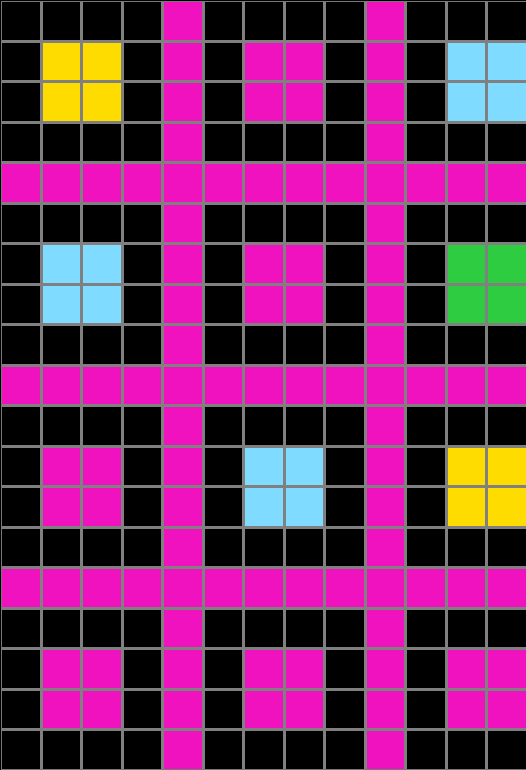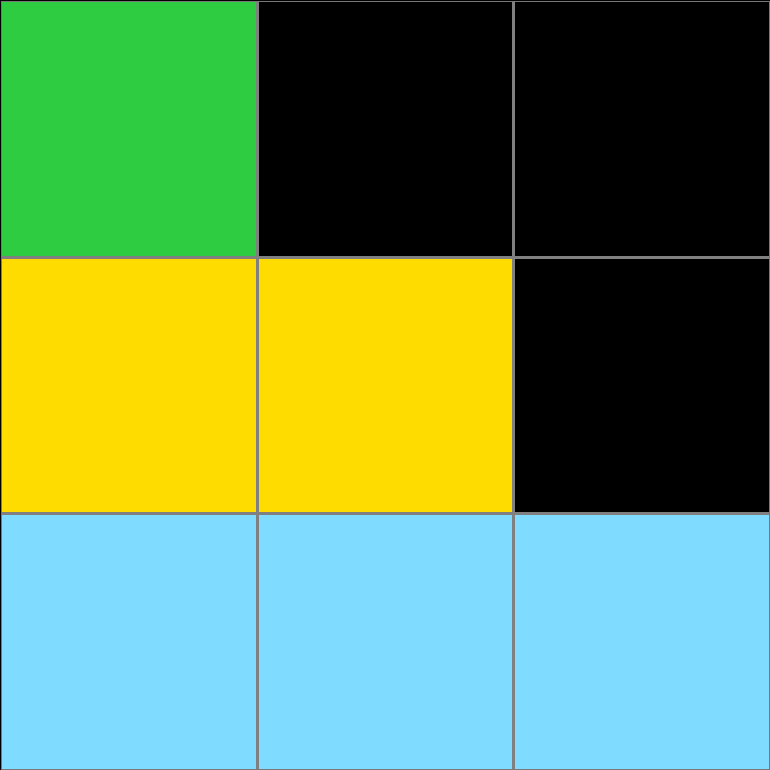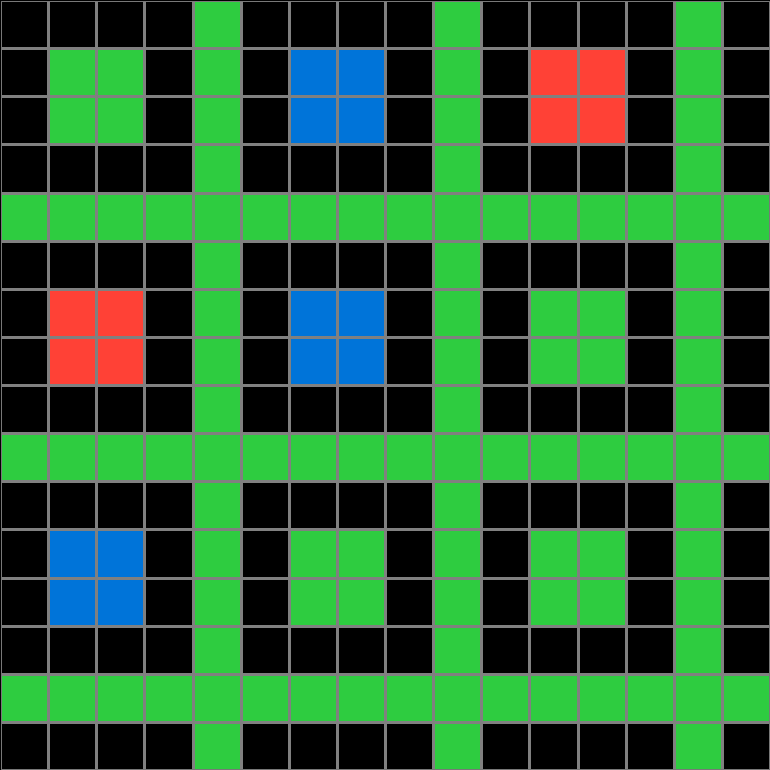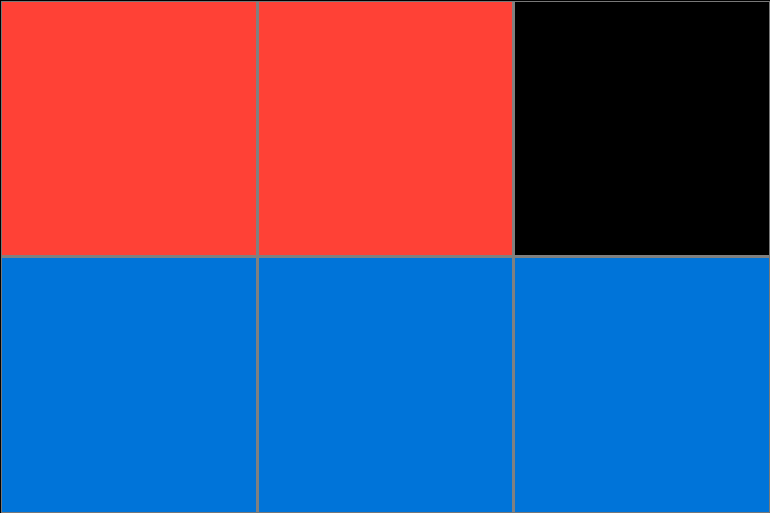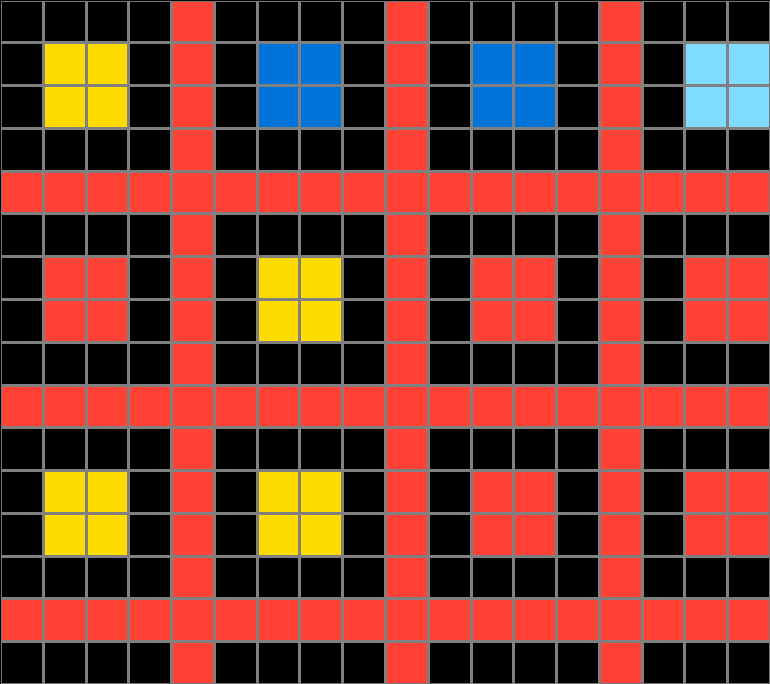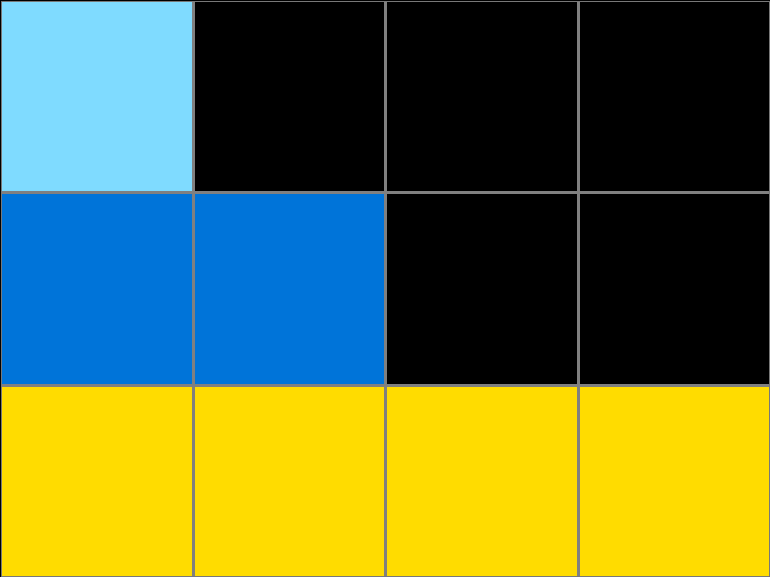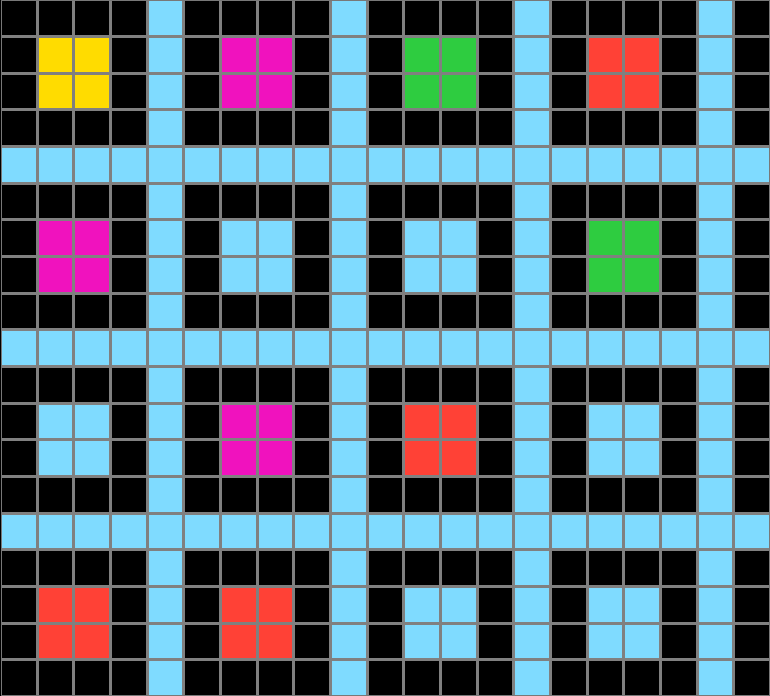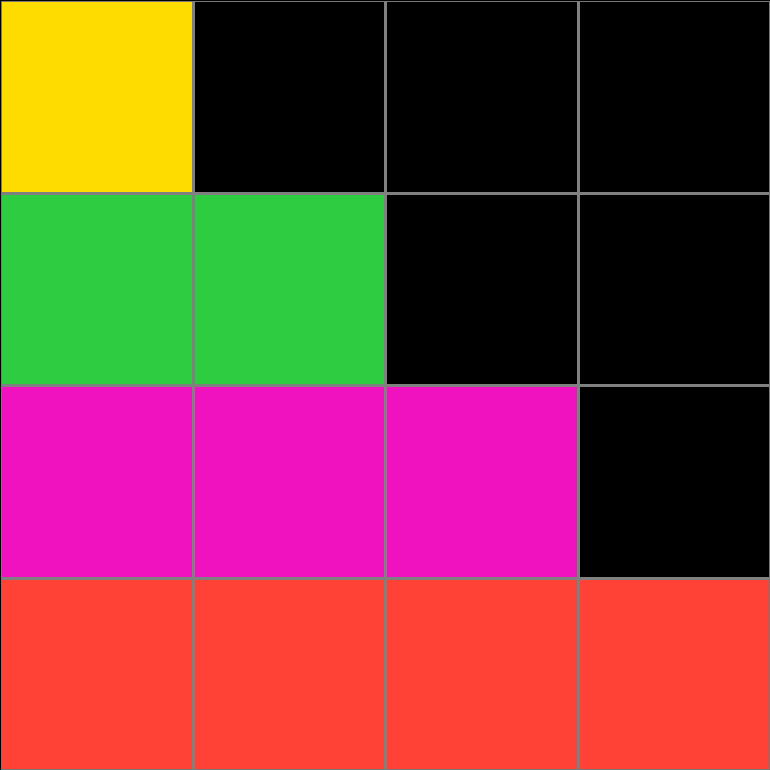Participant 1
Initial description: create a new grid only showing the inside squares
Final description: create a new grid only showing the inside squares
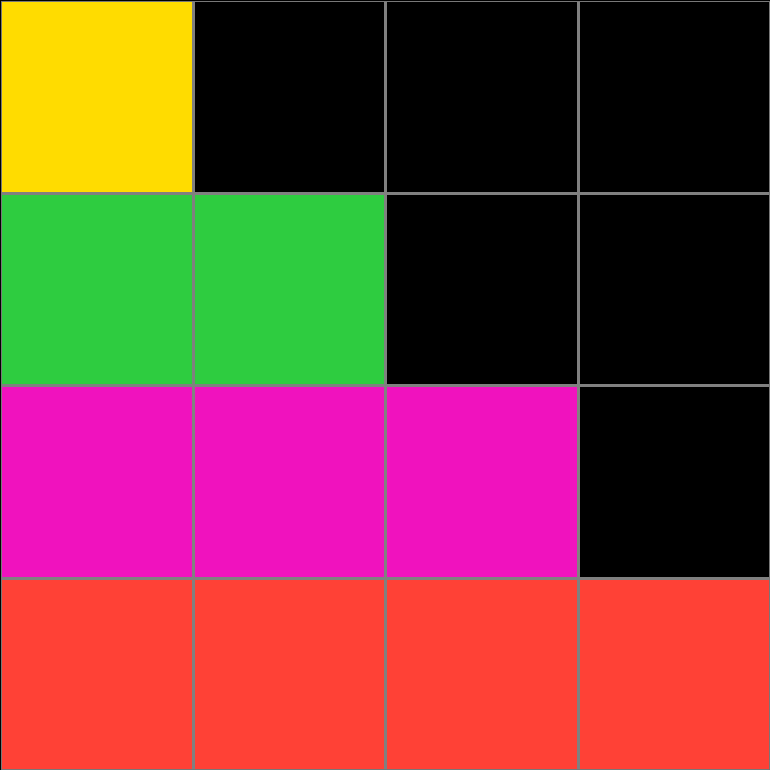
Participant 2
Initial description: The output is a square grid with size determined by the number of types of separate colored blocks of 4 excepting the color used to outline the grid. The number of the separate colored blocks of 4 are then represented in the output from least to greatest, starting at the top.
Final description: The output is a square grid with size determined by the number of types of separate colored blocks of 4 excepting the color used to outline the grid. The number of the separate colored blocks of 4 are then represented in the output from least to greatest, starting at the top.
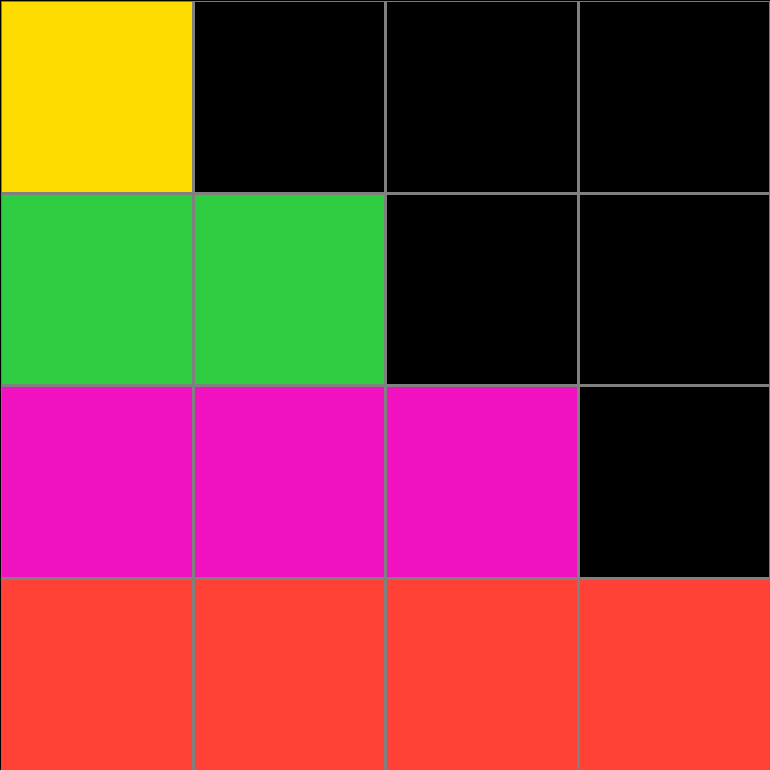
Participant 3
Initial description: Ignore blocks that are the color used in the cross sections. Using one color per row place the same amount of blocks on each row that are in the input.
Final description: Ignore blocks that are the color used in the cross sections. Using one color per row place the same amount of blocks on each row that are in the input.
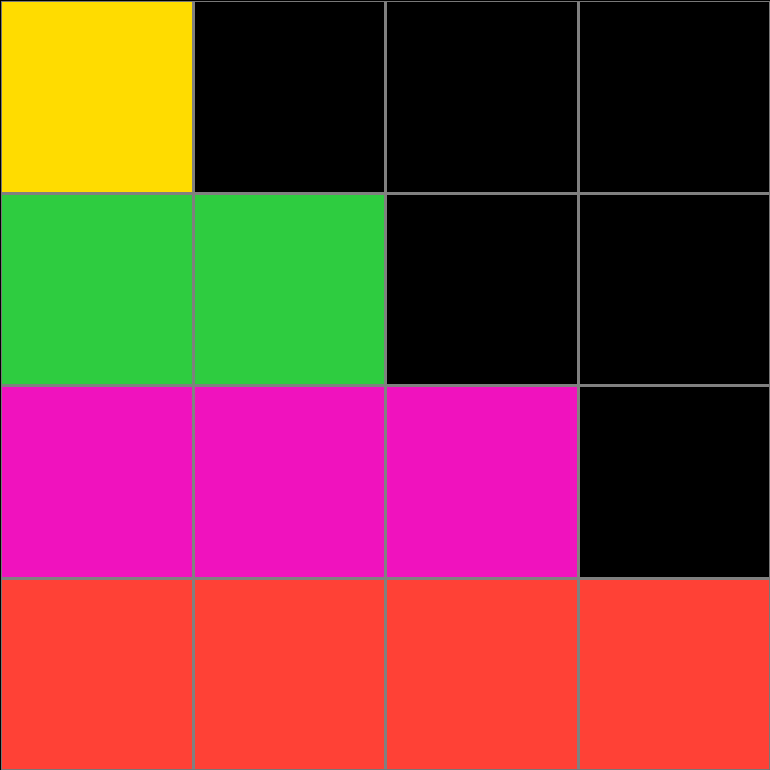
Participant 4
Initial description: Identify the number of minority colors and the total number of times they are used in the test input.
Final description: Identify the number of minority colors and the total number of times they are used in the test input.
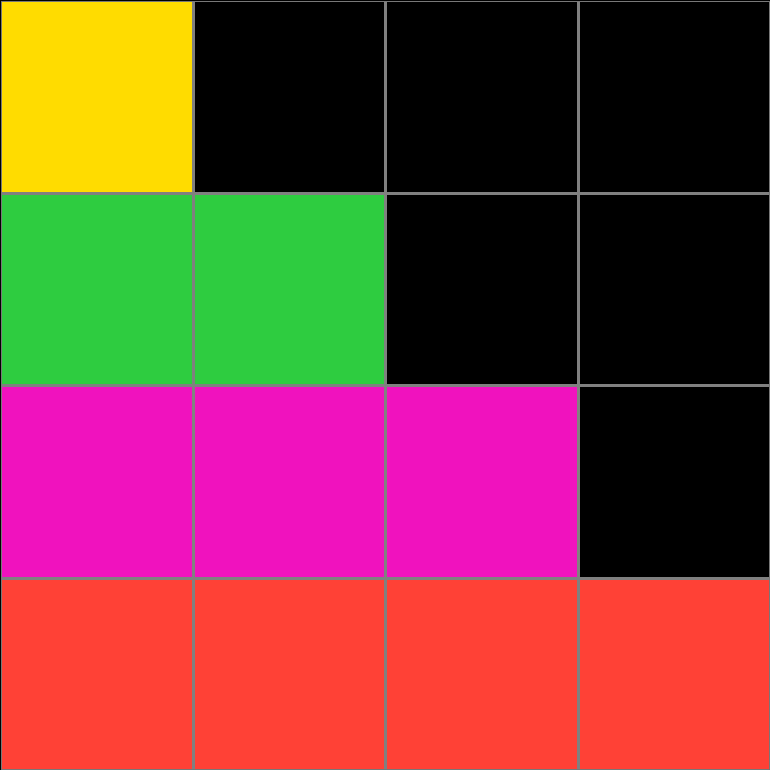
Participant 5
Initial description: create grid equal to number of small boxes and then fill in colors based on how many of each color, eliminating the one that is most
Final description: create grid equal to number of small boxes and then fill in colors based on how many of each color, eliminating the one that is most
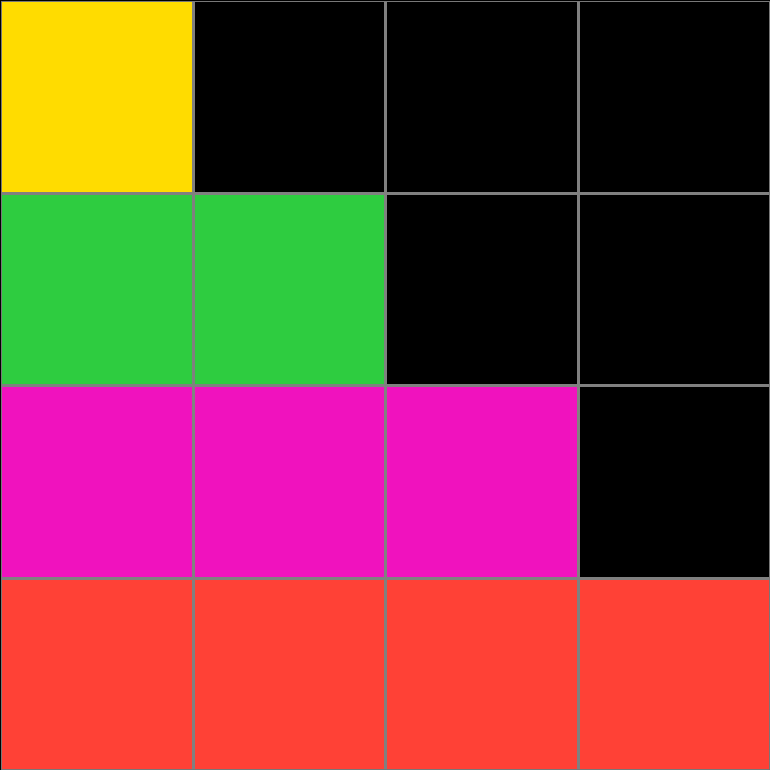
Participant 6
Initial description: For each unique color in the grid there should be a row, while ignoring what the overall background color is. Then for each column you count each "box" for every color, starting from the lowest moving downward towards the highest count.
Final description: To find out the height of the grid, count the number of unique colors are in the small "boxes" within the overall grid while ignoring black and whatever the overall background color is. So if there is 4 unique colors, you will have a height of 4. For the width just make it the same as the color with the most unique boxes. Then you simply go from top to bottom where each row is the number of unique boxes for each color starting with the lowest count for a given color.

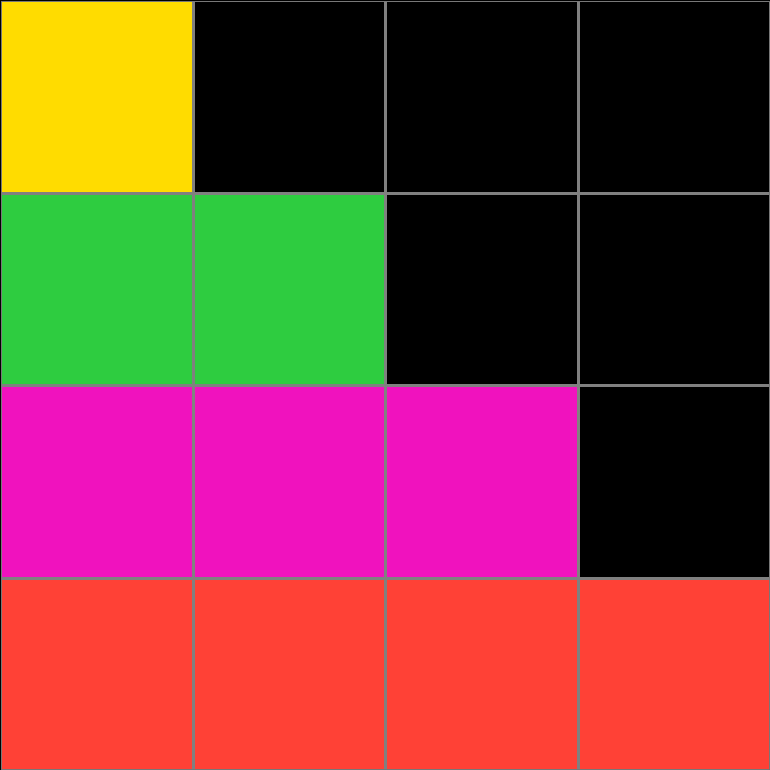
Participant 7
Initial description: You count the number of squares with certain colors and arrange them on the output from smallest to largest.
Final description: You count the number of squares with certain colors and arrange them on the output from smallest to largest.
